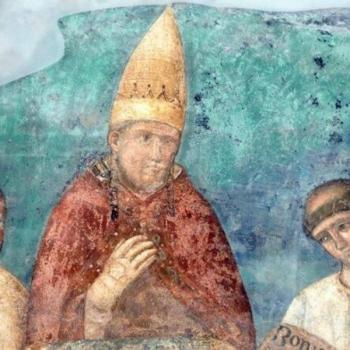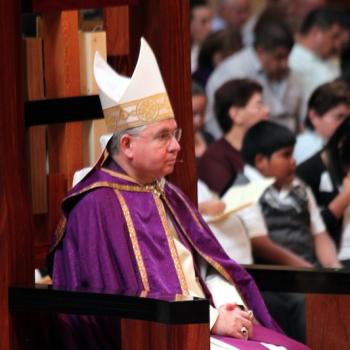This is the first section of my master’s paper, An Inquiry on the Relationship between Faith and Reason. This issue is at the forefront in religious and scientific circles, the highest authorities in both speaking and writing on the subject. Here is a part of my small contribution to the dialogue.
1. Faith and Reason
1.1 Magisterium Dei Filius
The Dogmatic Constitution Dei Filius (1870) of the First Vatican Council explores and marks the domains of human knowledge and divine faith, explaining how they relate to each other. Its second chapter, “On revelation” borrows from the distinction made by Thomas Aquinas between the two ways God can be known by man, a natural way and a supernatural way. God can be known with certainty when examining creation with the natural power of human reason since God manifests Himself in his creation. God however has not limited man’s knowledge of himself to natural knowledge, but has chosen to manifest himself through divine revelation. This supernatural knowledge of God includes also things of God that are not in themselves beyond the understanding of human reason, so that they may be known by everyone without difficulty, with firm certitude, and without any intermingling of error. For example, reason alone can know naturally that there is a God, but reason itself cannot know that this God wishes every person to participate in his divine life for eternity. Divine revelation also shows that God is one yet Triune at the same time.
Dei Filius analyzes the relationship between faith and reason arguing that there cannot be a discrepancy between the two. It is a clear and brief response to the intellectual mood of the late nineteenth century where faith and reason were presented as irreconcilable foes where being religious meant being irrational and being rational required atheism. The text points out that there is a twofold order of knowledge where knowledge in each is distinct on account of its source and object. As regards the sources, one is from natural reason while the other is from divine faith. As regards their objects, the former learns those things natural reason can attain and the latter those mysteries hidden in God that are proposed only through divine revelation.
Reason can achieve some understanding of the mysteries revealed such as the Trinity but cannot fully penetrate them. These mysteries are not irrational nonsense, reason can understand what is revealed, yet cannot fully comprehend it. Even though faith is above reason, the two cannot contradict each other because the same God who creates is the God who reveals. If faith and reason contradict each other, it means that God contradicts Himself. This is the central teaching of Dei Filius. The fathers of the First Vatican Council define then that “every assertion contrary to the truth of enlightened faith is totally false.” Any apparent contradiction means that either the teachings of church are not being understood or explained well or that there is an error in reason’s conclusion.[1]
1.2 Sacred Scripture
The separate realms of faith and reason are distinguishable in Sacred Scripture, in particular in the words and deeds of Jesus himself. When at Caesarea Philippi, as recounted in the Gospel of Matthew, Jesus asked his disciples, “Who do you say that I am?” to which the apostle Peter responded, “You are the Messiah, the Son of the living God.” Jesus’ response reveals an often overlooked fact, “Blessed are you, Simon son of Jonah. For flesh and blood has not revealed this to you, but my heavenly Father.”[2] The recognition of Jesus Christ as the Son of the Living God is not a conclusion based on observation and reason, but rather it is a revelation from God himself. Flesh and bone, reason alone, cannot reveal Christ’s divinity, only God can do it through faith. If faith depended solely on the conclusion of rational argument, it would no longer be faith, but rather simply knowledge, the same way one knows in a mathematical equation.
When Jesus walked on earth two thousand years ago many people saw him and heard him preach, yet not everyone recognized him as the fullness of God’s revelation. For example, when Jesus encountered the Samaritan woman at the well as recorded in the fourth chapter of the Gospel of John, Jesus said to her, “If you knew the gift of God and who is saying to you, ‘Give me a drink,’ you would have asked him and he would have given you living water.” Recognition of Jesus’ divinity is not obvious nor immediate, but rather requires the gift of faith. If it were otherwise, every single person in Judea would have fallen prostrate at his feet recognizing him as God.
Throughout the Gospels those who recognize Jesus’ divinity immediately are usually demons. When encountering two possessed men, the demons said to him right away, “What do you want to do with us, Son of God? Have you come here to torment us before the appointed time?”[3] Likewise when entering Capernaum a possessed man said to him, “What have you to do with us, Jesus of Nazareth? Have you come to destroy us? I know who you are – the Holy One of God!”[4] The spiritual realm recognized Jesus’ divinity right away unlike humans who are limited and require faith to recognize Jesus’ divine origin and mission.
In conclusion, reason alone cannot give faith because faith comes directly from God, but this does not mean that faith is irrational. Arguments from reason for the existence of God give direction, but these alone cannot give faith. Faith may be considered supra-rational, going beyond reason without doing violence to it or requiring its negation. There must ultimately be an acceptance of faith that goes beyond reason alone. The Reverend Ignatius Harrison of the Congregation of the Oratory rightly summarized the relationship between faith and reason in his 2009 Easter homily: “Facts by themselves are not always enough, though always indispensable. The facts down on paper do not always convince. The disinhinging [sic] of the facts is a supernatural process; they have to be ratified by the gift of faith.”
1.3 Benedict XVI Regensburg Address
Even though Dei Filius notes the fact that there cannot be any contradiction between faith and reason and Sacred Scripture demonstrates their unity despite having distinct sources, thought in the twenty-first century continues to place an almost irreconcilable gap between the two, mostly to the peril of reason which has been reduced exclusively to the realm of what is empirically verifiable. Pope Benedict XVI addressed this serious problem at the University of Regensburg in 2006 where he noted that today only knowledge that comes from mathematical and empirical sources is considered scientific. This methodology automatically excludes the question of God, considering it unscientific and even irrational or nonsensical. Benedict points out that by reducing science to the empirically verifiable or falsifiable, humans reduce themselves since the ultimate questions regarding man’s origin and destiny, questions that make sense to a reasonable mind, remain unanswered. He suggests that perhaps the methodology of modern science needs to broaden its concept of reason and its application to be more true to reality. It must include all questions raised by inquiring, rational minds, including the ultimate questions such as “how did everything begin?” and “what is our purpose?” These questions matter and cannot be ignored by science, but science cannot answer them because they lie outside the bounds of its knowledge ability. Since it requires the entry into a realm that does not use empirical evidence to determine truth, the realm of metaphysics, modern science puts down and ignores any conclusions achieved without empirical evidence. Modern science must admit that religion is rational and provides coherent answers to the ultimate questions. Benedict stresses the rational nature of religion throughout the Regensburg address, in particular by stating that, “not to act reasonably is contrary to the nature of God” and that theology must be recognized as the science that inquires into the rationality of faith.[5]
1.4 Tina Beattie
Catholic theologian Tina Beattie articulates the same thoughts as Benedict in a very clear and concise manner in her book The New Atheists. In answering the demand for proof for the existence of God by certain scientists she replies, “the word ‘God’ does not denote a ‘thing’ whose existence we can prove, any more than we can prove the ‘existence’ of love, compassion or hope. I cannot prove that my husband loves me, nor can I prove that Mozart’s music is sublime, Michalangelo’s Pieta is beautiful… but even so, I am not irrational or deluded when I say that I believe all these things to be true.” [6] Beattie accurately observes that humans have a certain way of being that does not always require proof or rationalization. If proof is not requested by scientists for many non-provable aspects of human life such as those described by Beattie, it seems inconsistent to demand an empirical proof for the existence of God.












